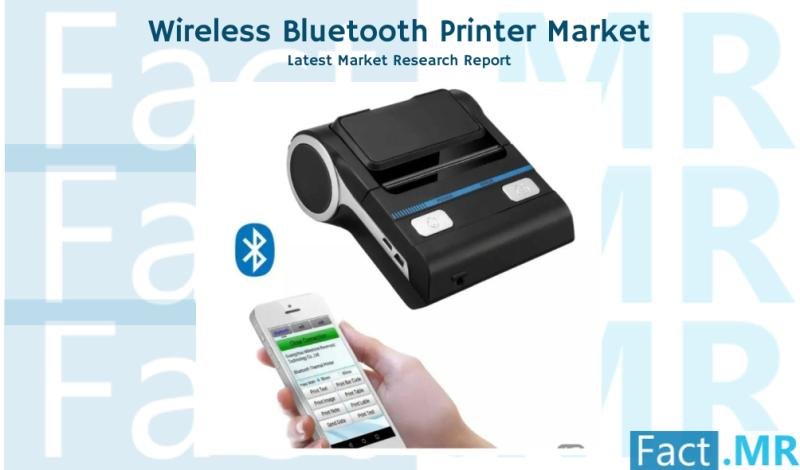The global Wireless Car Charging Market is witnessing an extraordinary growth trajectory, from an estimated US$ 36.5 million in 2024 to a staggering US$ 13.8 billion by 2034. This surge, marked by an 81% compound annual growth rate (CAGR), signals a future where EV owners can seamlessly charge their vehicles without the need for plugs or cords.
As the world rapidly shifts toward sustainable transportation, one of the key challenges for electric vehicle (EV) adoption has been charging convenience. No one wants to fumble with cables in the rain or search for available charging stations. Enter wireless car charging-a game-changing innovation set to redefine how we power electric vehicles.
How Wireless Car Charging Works
Wireless car charging is an advanced technology that eliminates the hassle of traditional plug-in systems. It utilizes inductive charging, where an electromagnetic field transfers energy from a ground-based charging pad to a receiver in the vehicle. When an EV equipped with the necessary technology parks over the charging pad, the energy transfer begins automatically. This means no more dealing with cables-just park and charge.
This technology aims to make charging more efficient, user-friendly, and accessible. As more automakers integrate wireless charging capabilities into their electric vehicle models, the adoption of this technology is set to accelerate.
Get Free Sample Research Report:
https://www.factmr.com/connectus/sample?flag=S&rep_id=9616
Why Wireless Car Charging is Gaining Popularity
Several factors are driving the demand for wireless car charging solutions. One of the most significant is the increasing adoption of electric vehicles worldwide. As concerns about climate change and carbon emissions grow, both individuals and businesses are opting for EVs as a greener alternative.
The convenience of wireless charging is another major advantage. Unlike traditional wired charging stations, which require manual plugging and unplugging, wireless solutions offer a seamless, automated experience. This is particularly beneficial for fleet operations, ride-sharing services, and urban environments where ease of use is a priority.
Governments worldwide are also playing a role in boosting the adoption of wireless car charging. Incentives, tax credits, and investments in charging infrastructure are encouraging automakers and technology providers to enhance the efficiency and availability of wireless charging solutions.
The Role of Innovation in Wireless Charging
The rapid evolution of wireless car charging technology is fueled by continuous innovation. Companies are investing heavily in research and development to improve charging efficiency, reduce energy loss, and speed up charging times. High-power wireless charging systems are emerging, enabling EVs to be charged faster without compromising energy efficiency.
Resonant inductive coupling is one of the latest advancements in this field. This technology allows efficient energy transfer over longer distances, making it possible to charge EVs even when they are not perfectly aligned with the charging pad. This is a significant step toward making wireless charging more practical for real-world use.
Additionally, smart features such as automated billing, remote monitoring, and integration with smart grids are being incorporated into wireless charging stations. These advancements will make charging more convenient, cost-effective, and compatible with future energy management systems.
Challenges to Wireless Car Charging Adoption
Despite its potential, wireless car charging faces some hurdles. One of the primary challenges is the high initial investment required for infrastructure development. Wireless charging systems, particularly those integrated into roads and parking facilities, demand significant financial resources.
Another concern is efficiency. While wireless charging is improving, it still has some energy losses compared to direct plug-in systems. Companies are working to minimize these losses to make wireless charging as efficient as possible.
Standardization is another roadblock. Different automakers and technology providers are developing their own wireless charging solutions, leading to potential compatibility issues. Industry-wide collaboration and standard-setting will be crucial to ensuring widespread adoption.
Regional Market Insights
Certain regions are leading the charge in wireless car charging adoption. East Asia is expected to account for 33.7% of the global market share by 2034, thanks to strong government initiatives and high EV adoption rates.
In North America, the market is projected to grow rapidly, with sales estimated at US$ 9.4 million in 2024. The United States is particularly promising due to its tech-savvy consumer base and increasing EV sales. By 2034, the U.S. market is expected to reach US$ 2.74 billion, driven by government incentives and advancements in charging technology.
Germany is also a key player, with strong automotive industry backing and financial incentives from the government for EV infrastructure development. Meanwhile, Japan’s wireless charging market is benefiting from industry collaborations and government support, with projections indicating it will reach US$ 1.39 billion by 2034.
The Role of Startups in Shaping the Market
Startups are playing a crucial role in the wireless car charging revolution. By focusing on technological differentiation, new players in the market are pushing the boundaries of innovation. Many startups are developing unique solutions to improve charging efficiency, reduce costs, and integrate smart features.
Collaborations between startups and major automotive manufacturers are also helping accelerate the adoption of wireless charging. These partnerships ensure that new technologies align with the latest EV models, making it easier for consumers to transition to wireless charging solutions.
Browse Full Report @ https://www.factmr.com/report/wireless-car-charging-market
What’s Next for Wireless Car Charging?
The future of wireless car charging looks promising, with advancements set to make charging faster, more efficient, and widely available. As governments continue to support EV infrastructure, businesses invest in new technologies, and consumer adoption rises, wireless charging will become a standard feature in electric mobility.
The introduction of dynamic wireless charging-where EVs can charge while driving-is another exciting development on the horizon. This technology could eliminate range anxiety entirely, making electric vehicles even more practical for everyday use.
In the next decade, wireless car charging will not just be a luxury but an essential component of the electric vehicle ecosystem. By offering unparalleled convenience and efficiency, this innovation is paving the way for a future where EV charging is as effortless as parking your car.
As the industry continues to evolve, one thing is certain: wireless car charging is here to stay, and it’s set to transform the way we power our vehicles forever.
Recently Publish by FactMR Industry:
Patient Throughput and Capacity Management Market:
https://www.factmr.com/report/patient-throughput-and-capacity-management-market
Life Insurance Policy Administration System Market:
https://www.factmr.com/report/life-insurance-policy-administration-system-market
Drone Accessories Market:
https://www.factmr.com/report/1889/drone-accessories-market
Vein Recognition Biometrics Market:
https://www.factmr.com/report/1829/vein-recognition-biometrics-market
Contact:
US Sales Office :
11140 Rockville Pike
Suite 400
Rockville, MD 20852
United States
Tel: +1 (628) 251-1583
E-Mail: sales@factmr.com
About Fact.MR
We are a trusted research partner of 80% of fortune 1000 companies across the globe. We are consistently growing in the field of market research with more than 1000 reports published every year. The dedicated team of 400-plus analysts and consultants is committed to achieving the utmost level of our client’s satisfaction.
This release was published on openPR.



















